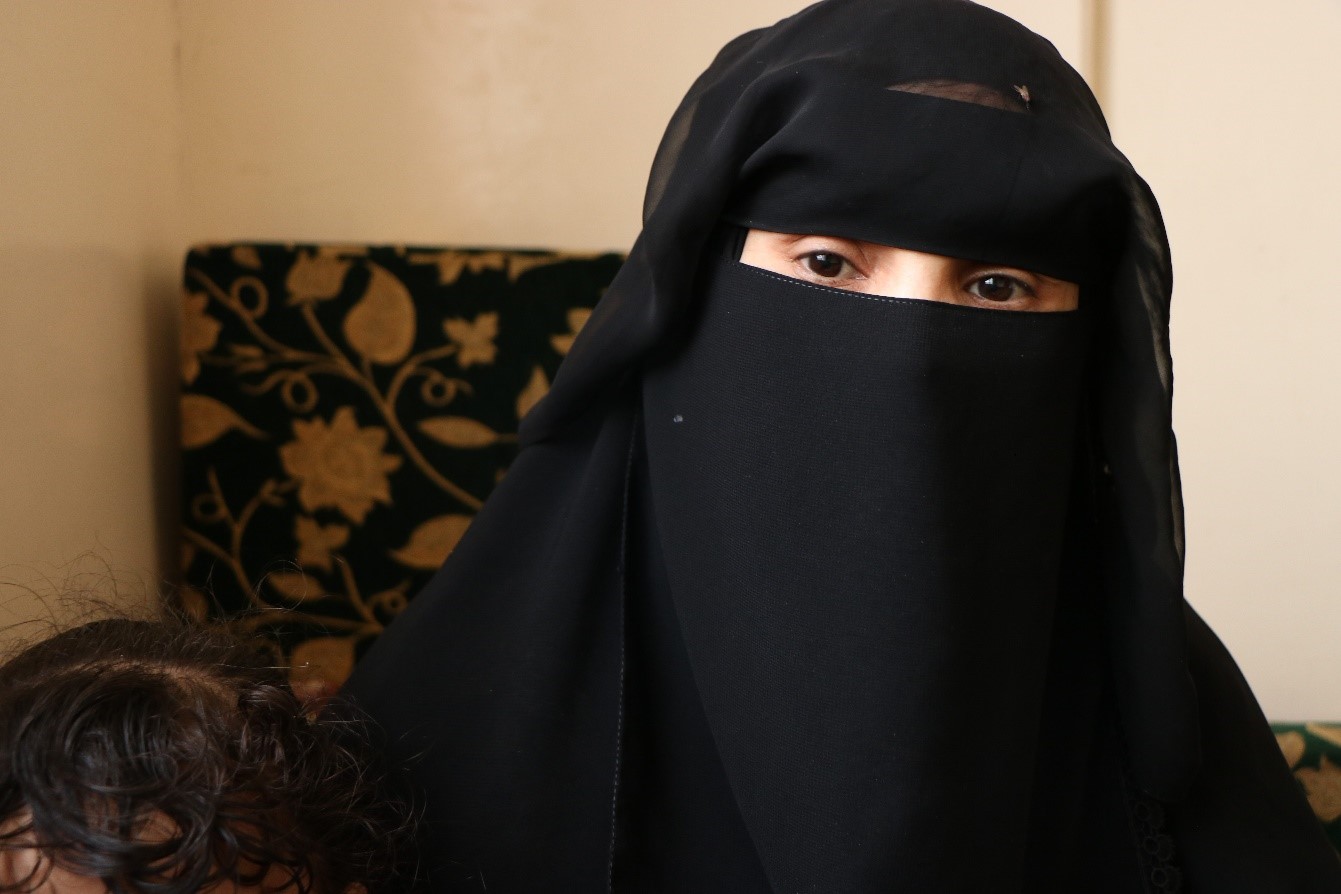Before the war, Yemen was already one of the world’s poorest countries with acute levels of hunger. After more than five years of war, the country is teetering on the edge of famine: 20.1 million people are food insecure, including nearly 10 million who are suffering from extreme levels of hunger.
Ishraq, a 28-year-old widow, is a mother of three children – two daughters and one son. Two years ago she lost her husband to a heart attack. “No words can express my grief,” she says sadly. “I lost my lover and protector.” With no proper education or training, Ishraq found herself responsible for the family. They depend on her husband’s pension as well as humanitarian aid to provide food, water, and other essentials. Ishraq couldn’t get a job because she couldn’t leave her young children alone.
Ishraq lives in Taizz governorate, southwestern Yemen, one of the most conflict-affected areas in the country. After her husband’s death, the family quietly fled their home one night when fighting escalated. Ishraq made the difficult decision to flee in order to save her family, and they ran away on foot, with only the clothes they had on.
Ishraq and her children were forced to settle in a frontline area because it was the only place they could afford to rent. “It’s dangerous to live here,” she explains. “Sometimes my house is caught between the fighting. The other day one of my children could have been killed by a bullet that hit the house, but God protected him as usual.”
Like many Yemenis, Ishraq worries about her children’s health, given their weak immunity and the spread of Coronavirus. Common public health measures such as closures and curfews make it difficult or impossible for many people to support their families. Small shops are closed and street vendors have lost their income. Switching to online work simply is not a feasible solution for most people. Over time, levels of hunger, malnutrition, chronic disease, and stress associated with economic problems may worsen dramatically. “A lot of my neighbours lost their work, some of whom remain in their homes without food,” says Ishraq.
With funding from the World Food Programme (WFP), CARE intervened in Taizz governorate with its emergency voucher and general food assistance project to help food-insecure families like Ishraq’s.
Through the project, hundreds of people in Taizz receive monthly food assistance to improve their food security and nutrition. “I hope this project continues to provide food for the neediest families,” says Ishraq. “Thanks to CARE, we now have enough food for our daily meals.”



